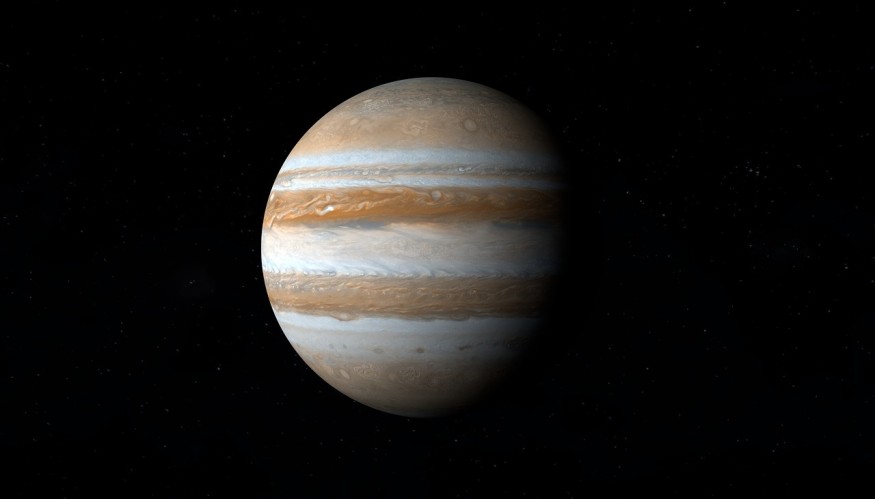
As Halloween nears, NASA has released a spooky shot of a ghoulish face taken by the Juno probe during its 54th close flyby to Jupiter.
Ghoulish Face Over Jupiter Surface
The spooky shot captures the moody clouds of the gas giant that forms an odd pattern that can be likened to a contorted mouth, nose, and eyes.
Half of the shot remains in darkness as it mainly captures the night side of the planet. NASA said that this just makes things even more creepy since the face-like pattern appears like the face is peeking out from a door.
The space agency adds that the spotting of the eerie face comes just in time for Halloween.
The shot was taken on September 7, when the spacecraft made a close flyby, its 54th one, to the gas giant. The probe specifically flew over the Jet N7, or northern regions, of Jupiter. The shot was released last October 25.
Interestingly, this is not the first time that the Juno probe was able to snap such a shot.
The Juno probe's view of the clouds of Jupiter often results in a phenomenon known as pareidolia, wherein the human brain wants to infer what is seen by the eyes to create meaning that actually is not real.
The seeming facial features were actually noticed by Vladimir Tarasov, a citizen scientist. Tarasov observed that the storm clouds of Jupiter had unusual shapes. He made the picture through raw data from the JunoCam instrument of the spacecraft. It snaps the storms and clouds along the terminator, which divides the night and day sides of the gas giant.
NASA Juno Probe
The NASA Juno probe officially started orbiting Jupiter on July 4, 2016. It is the first one to look below the dense clouds of the planet and delve into the peering mysteries of the gas giant and the solar system's origins. The probe is now operating on an extended mission phase to continue its in-depth investigation of the Jupiter gas giant.
It took the spacecraft five years to reach Jupiter. This journey officially began on August 5, 2011. It then reached the gas giant in 2016 after a 1,740-million-mile and five-year journey.
During its 35 orbits of Jupiter, the Juno spacecraft was able to gather over three terabits of scientific data and grant great views of Jupiter and its own satellites. The many discoveries made by the Juno probe have altered understanding regarding the interior and atmosphere of Jupiter.
The Juno spacecraft is now working on its extended mission to continue looking into Jupiter until September 2025 or until the spacecraft reaches the end of its lifespan. This extension comes with the tasks of Juno to become a full Jovian system explorer. This Jovian system covers Jupiter and its moons and rings.
Check out more news and information on Space in Science Times.










